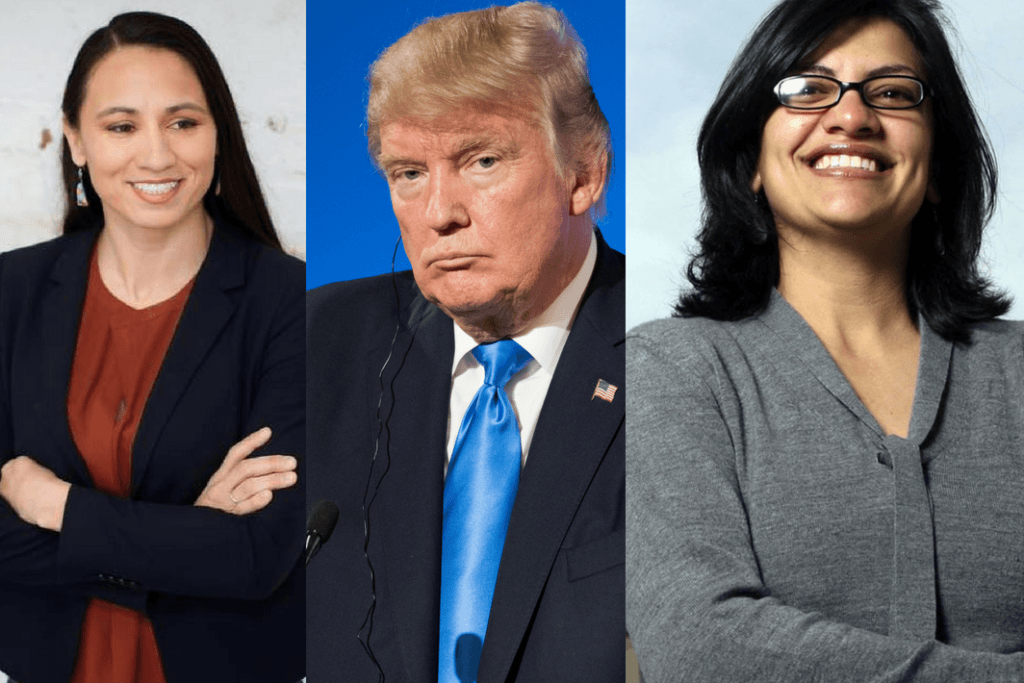Well, if it served as the impetus for record numbers of American women to run for Congress and fight for major social reform then, yes. Absolutely.
At least 183 female major party nominees will run in the US mid-term elections, obliterating the record of 167 in 2016, while a further two women could make the cut based on close primary contests. Eleven women have likewise been named as candidates for governors– the states’ highest executive.
Debbie Walsh, the director of the Centre for American Women and Politics (CAWP), said the country had seen a breakthrough where more women candidates were putting their hand up for office.
“The problem has not been women can’t get elected, we aren’t seeing enough women running,” Walsh told The Independent. “This year seeing this breakthrough records of women candidates – and now as we would expect, when you set records for candidates you then set records for women nominees.”
While Walsh acknowledged that “no single reason” could be conclusively attributed to the lack of female candidates in previous elections, she surmised that a number of systemic issues were likely at play such as inadequate financial capital and biased party recruitment.
“Everyone brings their life experiences to whatever they do. Because of that they see issues differently and have different priorities,” she said– adding that female representation was crucial as women tend to recognise “how issues might affect women differently than men”.
It’s official. With polls closed in KS, MI, MO, we’ve broken the record for women major party nominees for U.S. House in any year.
The previous record was 167. With 5 women candidates unopposed and one all-female primary, we’ve hit 168 tonight with possibly more to come. pic.twitter.com/KGwEm18AIq
— CAWP (@CAWP_RU) August 8, 2018
And within this historic record of greater female representation, there are several other sub-records being broken at the same time.
Rashida Tlaib, for instance, is preparing to become the first Muslim woman in Congress after she won the Democratic primary in Michigan’s 13th Congressional District yesterday. A former state legislator, she will run unopposed in November.
When people ask has Trump done anything good in office, the answer is this – #MeToo – last night our likely first Muslim American and Native American women won primaries on their ways to Congress. https://t.co/IJEbnE3BeB
— Amy Siskind (@Amy_Siskind) August 8, 2018
“I want people across the country to know that you don’t need to sell out,” Tlaib told crowds of supporters on Wednesday evening. “You don’t have to change who you are to run for office — and that is what this country is about.”
The daughter of Palestinian immigrants, Tlaib told the Huffington Post she was determined to serve as a voice for marginalised Americans.
“When you think about these stories, someone that didn’t speak English when they started school, parents with no high school diploma now able to witness their daughter to become a member of Congress, it’s a pretty spectacular American story,” she said.
“I’m going to be a voice for them,” she added.
“I look forward to being able to humanise so many of them that have felt ‘less than’ for so long.”
In another momentous sub-tale, Sharice Davids won a tightly contested, six-way Democratic primary in Kansas to emerge the state’s first Native American and gay nominee for Congress.
In November’s general election, Davids– a former mixed martial arts fighter– will face off against Rep. Kevin Yoder, the incumbent Republican who is running for his fifth term in office.
Raised by a single mum, Davids courageously worked her way up from community college to Cornell Law School, securing endorsements from Moms Demand Action For Gun Sense in America, Victory Fund, and EMILY’s List during her campaign.
In an interview earlier this year, Davids said she felt proud to be a part of a new wave of change in America.
“Across the country, we’re seeing this movement of people whose voices have not been listened to for so long stepping into the political sphere and succeeding,” she said.
“I feel proud about being part of this. Because change happens so incrementally and I feel that this is the part that I get to play in history.”
…And it all started with Trump.


